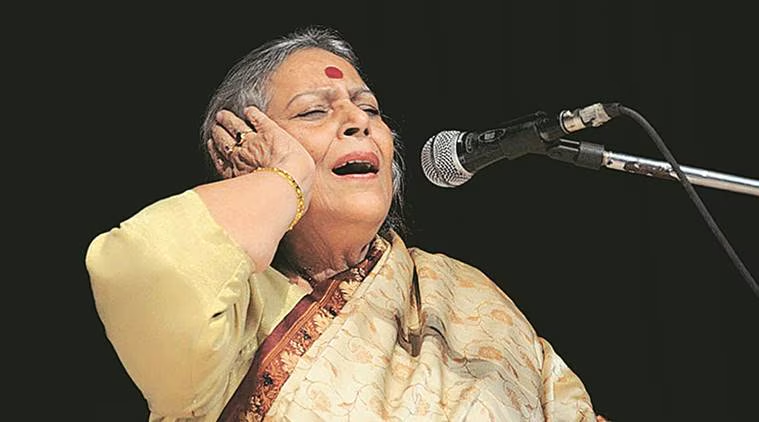Siddheshwari Devi: The Queen of Thumri

Siddheshwari Devi was one of the most revered classical singers of India, known for her soulful renditions of Thumri, Dadra, and other semi-classical forms of Hindustani music. Born in 1908 in Varanasi, she was deeply influenced by the musical traditions of the city, which is known as a hub of classical music. Coming from a humble background, she was raised in a family of musicians but had to struggle to receive formal training. She was trained by Pandit Bade Ramdas and later received guidance from other renowned musicians of her time. Despite societal challenges, she carved a niche for herself in the male-dominated world of classical music, earning immense respect for her powerful and emotive voice.
Siddheshwari Devi’s singing was characterized by its deep emotional depth, expressive phrasing, and mastery over semi-classical forms. She specialized in Thumri, a genre that focuses on romantic and devotional themes, and became one of its foremost exponents. Apart from Thumri, she also excelled in other light-classical genres such as Dadra, Chaiti, and Kajri, bringing out the essence of folk influences in her music. Her renditions were often described as deeply moving, capable of touching the soul of the listener. Unlike the fast and ornamental style of some of her contemporaries, Siddheshwari Devi’s music emphasized the depth of emotions, making her performances highly evocative.
Her contribution to Indian music was widely recognized, and she received several accolades for her work. She was honored with the Padma Shri, one of India’s highest civilian awards, for her immense contribution to Hindustani classical music. Her influence on later generations of musicians is profound, as she mentored and inspired many aspiring singers who carried forward the tradition of Thumri singing. She passed away in 1977, leaving behind a rich legacy of music that continues to inspire artists and music lovers alike.
Siddheshwari Devi’s legacy remains unparalleled in the world of Hindustani music. She is remembered not only for her musical brilliance but also for her resilience and dedication to her art. Her voice, filled with devotion and emotion, continues to echo in the annals of Indian classical music, making her one of the most cherished figures in the history of Indian music.
Early Life and Musical Journey
Born in 1903 in Varanasi, Siddheshwari Devi came from a modest background. She lost her parents at a young age and was raised by her maternal aunt, Vidyadhari Devi, a well-known singer. Under her guidance, Siddheshwari received early musical training, eventually becoming one of the most celebrated vocalists of her time.
Mastery of Semi-Classical Music
Though trained in khayal and dhrupad, Siddheshwari Devi excelled in semi-classical genres like thumri, dadra, chaiti, and kajri. Her emotive singing and unique voice captivated audiences across India. Unlike some contemporaries who adhered strictly to technical precision, she prioritized emotional depth and improvisation, making her performances unforgettable.
Awards and Recognition
Siddheshwari Devi’s immense contributions to Indian classical music earned her several prestigious awards:
•Padma Shri (1967) – One of India’s highest civilian honors for her dedication to music.
•Sangeet Natak Akademi Award (1967) – Recognizing her excellence in Hindustani classical music.
•ITC Sangeet Samman – Honoring her lifelong contribution to the field of classical music.
Her accolades reflect her mastery and the immense respect she commanded in the musical world.
Legacy and Influence
Siddheshwari Devi trained many disciples who carried forward her legacy, ensuring that the Banaras Gharana style continued to thrive. Her life was a testament to perseverance and devotion to music. Even today, her recordings serve as an inspiration for aspiring musicians and connoisseurs of Hindustani classical music.
Conclusion
Siddheshwari Devi was more than just a singer; she was a legend who transformed the landscape of Hindustani classical music. Her voice still resonates in the hearts of music lovers, keeping her legacy alive in the world of Indian classical music.